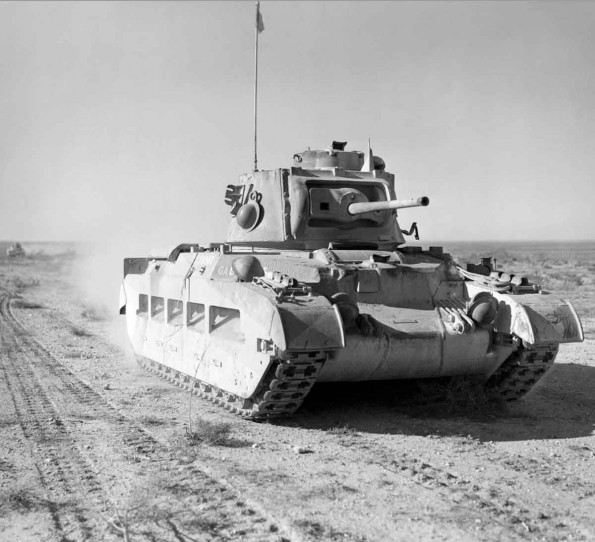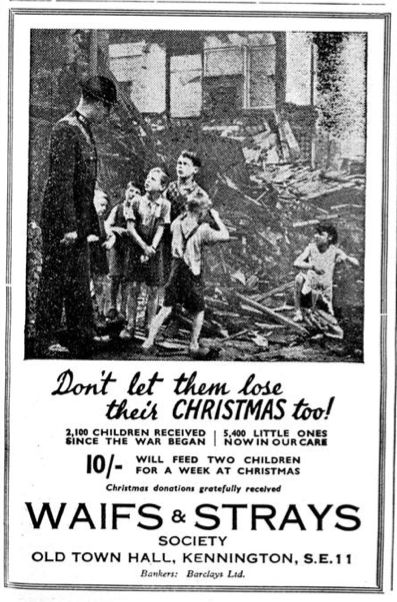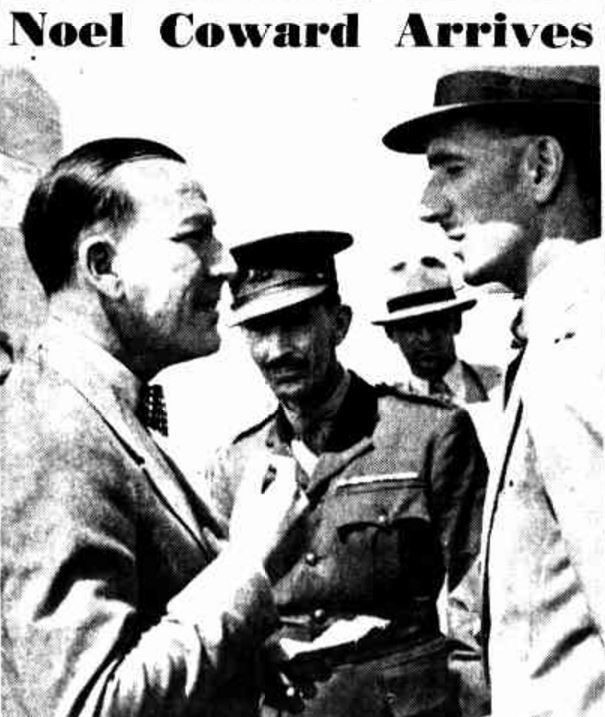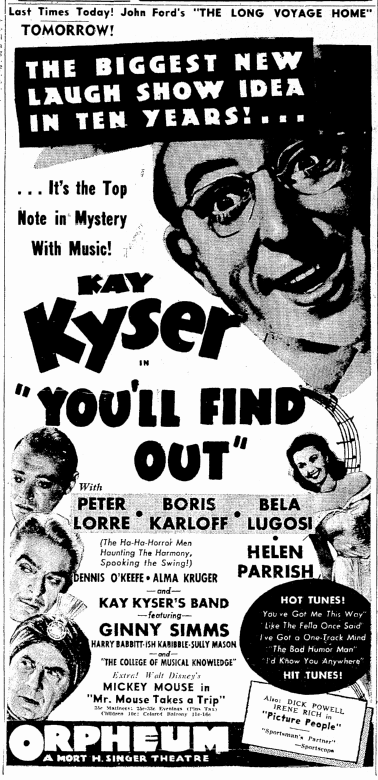Thursday 19 December 1940
 |
| A British Matilda tank on the move in North Africa, 19 December 1940. |
Greek I Corps (2nd, 3rd, and 4th Divisions) continue advancing on Himarë (Himara) along the southern coast of Albania. They capture the Giam height.
The Greek 3/40 Evzone Regiment, under the command of Colonel Thrasyvoulos Tsakalotos, helps the assault on Himarë. It launches a surprise dawn attack on Italian troops at Mount Mount Mali i Xhorët (Mount Pilur) a little to the east. Their objective is Italian artillery posted the high ground, which guards the entrance to the valley of Shushicë which provides access to the Italian port.
European Air Operations: RAF Bomber Command sends 85 bombers against Cologne and targets in the industrial Ruhr River Valley. RAF Coastal Command raids the airfield at Le Touquet and a railway between Oslo and Bergen. The Luftwaffe makes a few small sorties against the Home Counties after dark, losing a bomber but causing some damage in Swindon.
The British War Cabinet is reviewing the efficiency of the air war against Germany and Italy. In a report for their eyes only by the Secretary of State for Air, the conclusion is drawn that, relative to the size of their respective forces, the RAF is causing more damage to Germany than the Luftwaffe is to Great Britain.
 |
| Bomb damage at Beatrice and Ipswich Streets in Swindon on 19 December 1940. Five houses destroyed, others damaged. |
Italian submarine Alpino Bagnolini torpedoes and sinks 3360-ton British freighter Amicus about 200 miles west of Ireland. The Amicus was traveling with Convoy SC 15, which recently had dispersed. Everyone on board the Amicus perishes. The Bagnolini is part of a patrol line west of the North Channel, formed along with U-95, U-38 and U-124 and Italian submarine Tazzoli. Some sources place this sinking a week earlier.
Royal Navy destroyers HMS Veteran and Verity collide in Lough Foyle near Londonderry. The Veteran has light damage to her stern which will keep her in port for a few days, but the Verity's damage to her flooded engine room is more serious and will take a few months in drydock at Belfast to repair.
The Luftwaffe (Focke-Wulf Fw 200 Condors of I,/KG 40) bombs and sinks British 734-ton lightship tender Isolda off Barrels Rock Light Vessel, South Wexford, in St. George's Channel. There are six deaths.
British 57-ton naval trawler HMT Proficient runs aground and is broken up by the waves at Whitby, Yorkshire.
Dutch 400-ton freighter Twee Gebroeders hits a mine and is damaged in the Thames Estuary.
British tanker Arinia hits a mine and sinks in the Thames Estuary off the Nore Lightship. All 60 people on board perish.
Norwegian freighter Erling Skjalgson sinks in heavy seas off Jæren, Rogaland. All six crew survive.
Danish phosphate freighter Jacob Maersk hits a mine off Drogen and sinks off Copenhagen. However, it sinks in shallow water and can be salvaged and repaired. The Maersk shipping companies take a beating during this period of the war.
Norwegian 5043-ton freighter Arosa hits a mine in the Humber but makes it back to port.
Convoy OB 261 departs from Liverpool, Convoys FS 364 and FS 365 depart from Methil, Convoy BS 11 departs from Suez.
Destroyer HMS Legion (G 74, Commander Richard F. Jessel.) is commissioned, and destroyer HMS Blankney is launched.
U-75 and U-111 are commissioned.
 |
| "A mobile bakery lorry and trailer at Aldershot, 19 December 1940." © IWM (H 6271). |
The RAF bombs Bardia and Derna. General O'Connor reports that his forces have suffered only 141 killed or missing and 387 wounded during Operation Compass. The British now have literally tens of thousands of prisoners to process and new forward supply bases to set up.
Meanwhile, the incredulity about recent events in North Africa breaks out in an odd exchange between Prime Minister Churchill and General Wavell, the Middle East Commander, who throw scriptural references at each other. Churchill has sent Wavell a telegram with the cryptic reference "St. Matthew, Chapter VII, verse 7" (Ask, and it shall be given you; seek, and ye shall find; knock, and it shall be opened unto you); Wavell replies today with the following:
St. James, Chapter I, first part of verse 17, "Every good gift and every perfect gift is from above..."! More aircraft are our immediate need and these you are providing.While it is not much of an exchange, it underscores how the two men - and everyone else in the know - ascribe the wildly unexpected success of Operation Compass to some sort of divine intervention.
The Royal Navy fleet movements in support of the convoy to Malta continues. Operations Hide and Seek (Hide is a sortie by Force H to meet battleship HMS Malaya and accompanying vessels coming west from Alexandria, Seek is the related anti-submarine sweep) come off without Italian interference.
River gunboat HMS Aphis continues to bombard Italian positions around Bardia without much interference from the Italian air force. Royal Navy battleships HMS Valiant and Warspite bombard Vlorë, Albania.
German 7563 ton freighter Freienfels and 7605-ton freighter Geierfels hits mines and sink near Livorno.
Battle of the Pacific: Troop convoy US 8 departs from Wellington. It includes two liners, the Dominion Monarch and Empress of Russia. Its first stop is Sydney, where it will accrue the Queen Mary and lose the Empress of Russia, which will return to Auckland.
The US Secretary of the Navy takes over control of uninhabited Palmyra Atoll, which legally has been under the Navy's jurisdiction since 1934. This is to become the site of the "Palmyra Island Naval Defensive Sea Area," restricted to passage only by ships authorized by the US Secretary of the Navy. The date when the Navy actually arrives is in spring 1941. Palmyra Atoll, incidentally, remains to this day the only incorporated territory in the United States, but it most definitely is American land although almost nobody outside the Navy knows it even exists. It truly is one of the most remote spots on earth and apparently never has been permanently inhabited, whether in ancient or modern times.
Italian/German Relations: The Italian attitude toward German intervention in North Africa has shifted 180 degrees from its position just two months ago. While then the Italians had not wanted any German interference in what they saw as their own national sphere of influence, the Mediterranean basin, today they ask that the Wehrmacht send an armored division and support troops to Libya at the earliest opportunity.
Anglo/US Relations: The British Purchasing Commission places $750 million in war orders. This includes orders for 12,000 aircraft and 60 merchant ships, all to be completed within one year's time. Congress will be consulted about this transaction.
 |
| Risto Ryti leaving Finnish parliament after being inaugurated as President, 19 December 1940. |
The new President is Risto Ryti.
 |
| Cine Magazzino, Anno VII, Num. 51, 19 December 1940. |
One cannot say that the Italians have shown high fighting spirit or quality in this battle.... The A.R.P. services, the Home Office, and the Ministry of Health are as much in the front lines as are the armoured columns chasing the Italians about the Libyan desert....In a long-winded address, Churchill posits that "The Germans reached the culminating point at the end of last year," and he points to the recent bombing of Mannheim - which by now he knows did not hit the strategic targets intended - as inflicting "very heavy blows."
Holocaust: With the Christmas holiday approaching, Archbishop Sapieha of Krakow, Poland requests in a letter to Auschwitz Commandant Rudolf Höss that Christmas services be permitted there. Höss permits his inmates to receive 6000 one-kilogram food parcels but flatly turns down the religious request because no religious observances whatsoever are permitted in the camp. A former Catholic, Höss left the religion due to the horrors of World War I.
International Red Cross shipments such as these, incidentally, are greatly treasured throughout the war both in the concentration camps and in POW stockades and often a large proportion of them fall into the hands of the guards. The IRC does do its best to verify matters.
 |
| The Waifs & Strays Society has plenty of work to do this Christmas season, 19 December 1940. |
December 1940
December 1, 1940: Wiking Division Forms
December 2, 1940: Convoy HX 90 Destruction
December 3, 1940: Greeks Advancing
December 4, 1940: Italian Command Shakeup
December 5, 1940: Thor Strikes Hard
December 6, 1940: Hitler's Cousin Gassed
December 7, 1940: Storms At Sea
December 8, 1940: Freighter Idarwald Seized
December 9, 1940: Operation Compass Begins
December 10, 1940: Operation Attila Planned
December 11, 1940: Rhein Wrecked
December 12, 1940: Operation Fritz
December 13, 1940: Operation Marita Planned
December 14, 1940: Plutonium Discovered
December 15, 1940: Napoleon II Returns
December 16, 1940: Operation Abigail Rachel
December 17, 1940: Garden Hoses and War
December 18, 1940: Barbarossa Directive
December 19, 1940: Risto Ryti Takes Over
December 20, 1940: Liverpool Blitz, Captain America
December 21, 1940: Moral Aggression
December 22, 1940: Manchester Blitz
December 23, 1940: Hitler at Cap Gris Nez
December 24, 1940: Hitler at Abbeville
December 25, 1940: Hipper's Great Escape
December 26, 1940: Scheer's Happy Rendezvous
December 27, 1940: Komet Shells Nauru
December 28, 1940: Sorge Spills
December 29, 1940: Arsenal of Democracy
December 30, 1940: London Devastated
December 31 1940: Roosevelt's Decent Proposal
2020










